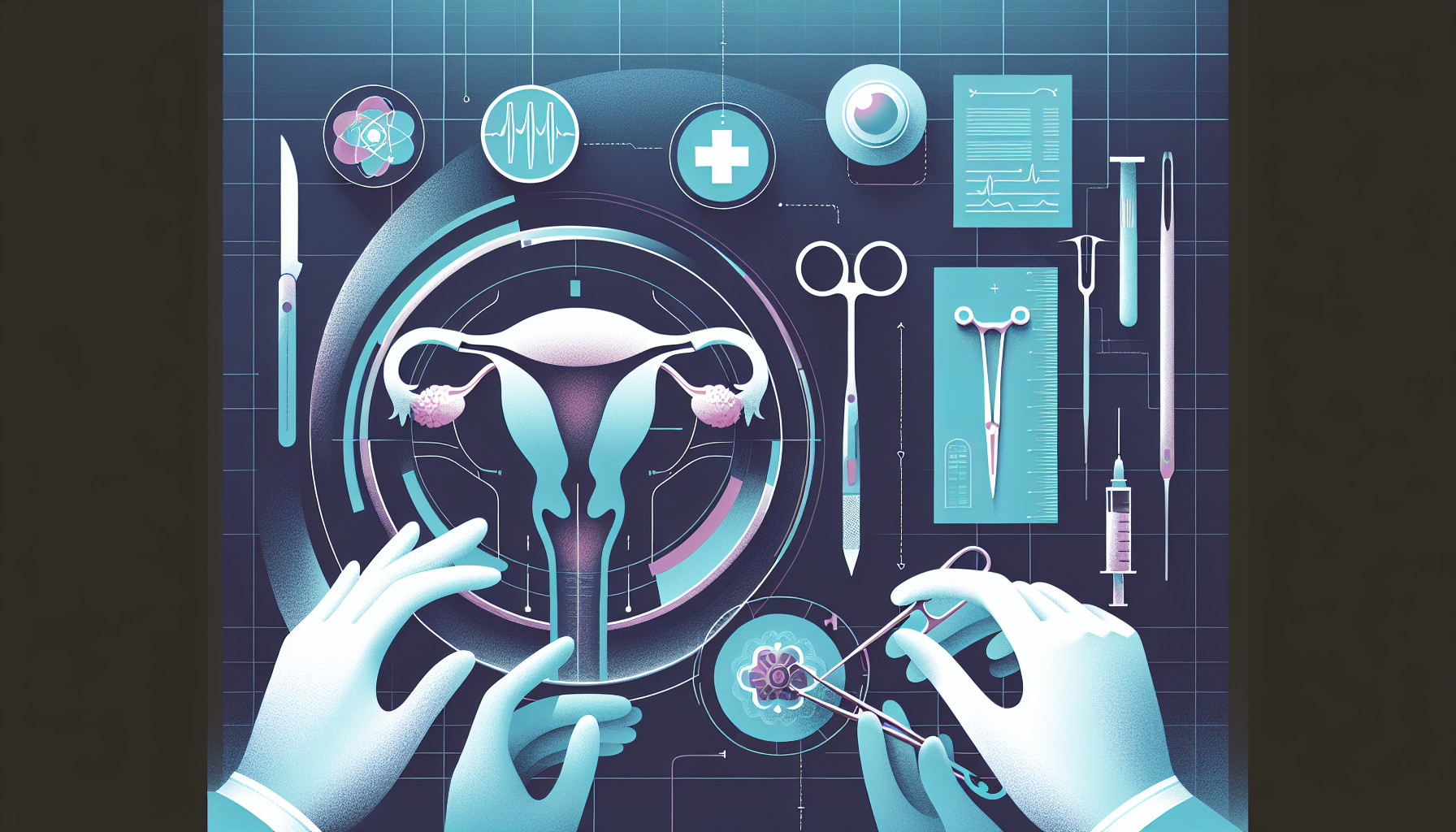Our Summary
This research paper is a review of past studies on the effects of a specific procedure, called radiofrequency ablation (RFA), on pregnancies. RFA is a kind of treatment used for myomas, which are non-cancerous growths in the uterus that can affect fertility.
The researchers looked at 405 past studies, but only 10 of these met their criteria for being useful and high-quality. From these studies, they found 50 cases where women who had RFA treatment later became pregnant.
Most of these women were around 37 years old when they had the treatment and had between 1 and 3 myomas treated. The size of the myomas varied between less than 2 centimeters to about 12.5 centimeters.
Out of the 50 pregnancies, 6 ended in miscarriage, which is similar to the rate in the general population, and 44 resulted in full-term pregnancies. Of these, 24 were natural births and 20 were cesarean sections. Only two complications were reported, but neither had long-term effects.
The researchers concluded that RFA treatment seems to be a safe and effective option for women who want to have children in the future but currently have myomas. However, more research is needed to confirm these findings.
FAQs
- What is radiofrequency ablation (RFA) and what is it used for?
- What were the findings related to pregnancy after RFA treatment in the research paper?
- Is RFA treatment considered safe for women who want to conceive in the future?
Doctor’s Tip
One helpful tip a doctor might tell a patient about uterine ablation is to discuss fertility preservation options before undergoing the procedure. While uterine ablation can be an effective treatment for conditions like heavy menstrual bleeding or fibroids, it can also impact fertility. It’s important for patients to talk to their doctor about their future family planning goals and to explore options such as freezing eggs or embryos before proceeding with uterine ablation. This can help ensure that they have the best chance of achieving a successful pregnancy in the future.
Suitable For
Overall, patients who are typically recommended uterine ablation are women who suffer from heavy menstrual bleeding, have not responded to other treatments such as medication, and have completed childbearing or do not wish to have children in the future. Uterine ablation is not recommended for women who are pregnant, have certain medical conditions, or have a history of uterine cancer.
Timeline
Before undergoing uterine ablation, a patient may experience symptoms such as heavy menstrual bleeding, pelvic pain, and other issues related to uterine fibroids or other conditions. They may have tried other treatments such as medication or hormonal therapy before considering ablation.
After uterine ablation, a patient may experience some cramping, spotting, or discharge for a few days. They may also need to take pain medication and avoid strenuous activities for a short period of time. Over the following weeks and months, they should experience a significant reduction in menstrual bleeding and other symptoms related to their condition.
Overall, uterine ablation is a minimally invasive procedure that can provide long-term relief for women suffering from heavy menstrual bleeding or other uterine conditions. It is important for patients to discuss the risks and benefits of the procedure with their healthcare provider before making a decision.
What to Ask Your Doctor
Some questions a patient should ask their doctor about uterine ablation, specifically radiofrequency ablation (RFA), include:
- What is the success rate of RFA treatment for myomas in terms of symptom relief and preserving fertility?
- How long does it take to recover from RFA treatment, and what are the potential side effects or complications?
- Will RFA treatment affect my ability to become pregnant in the future?
- How soon after RFA treatment can I try to conceive, and are there any specific precautions I should take?
- What are the chances of complications during pregnancy or childbirth after undergoing RFA treatment?
- Are there any alternative treatments for myomas that may be more suitable for preserving fertility?
- How often will I need follow-up appointments or monitoring after RFA treatment to assess my reproductive health?
- Are there any lifestyle changes or medications I should consider to improve my chances of a successful pregnancy after RFA treatment?
- Can you provide me with information about support groups or resources for women who have undergone RFA treatment and are trying to conceive?
- What are the long-term implications of RFA treatment on my reproductive health and overall well-being?
Reference
Authors: Polin M, Hur HC. Journal: J Minim Invasive Gynecol. 2022 Jun;29(6):709-715. doi: 10.1016/j.jmig.2022.01.015. Epub 2022 Feb 2. PMID: 35123041
